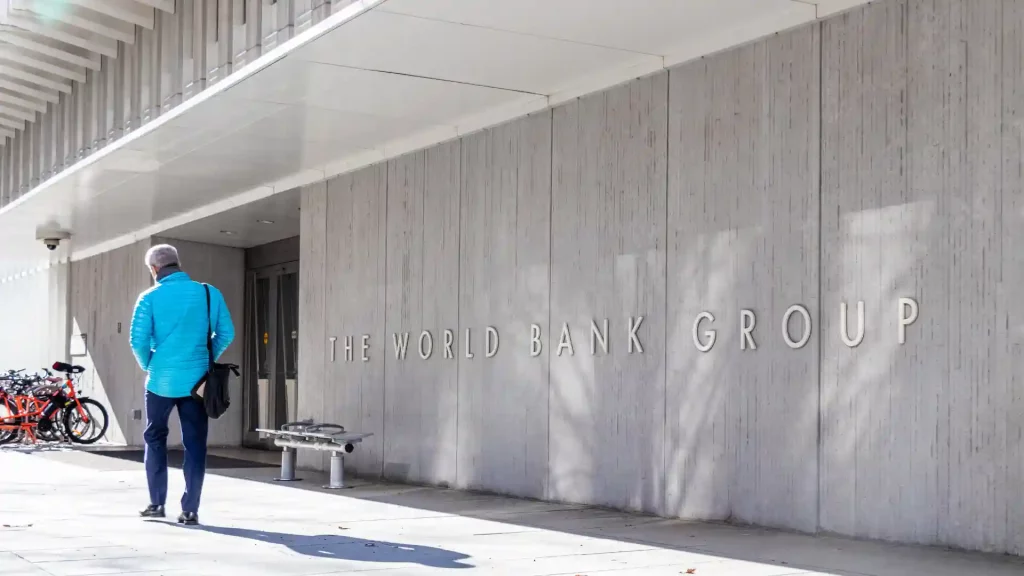It was reported in the Gulf Economic Update, which also mentioned that the GCC would grow by 1 % in the current year before picking up pace for the upcoming two years.
The World Bank has published a report that has estimated that the combined economy of the Gulf Cooperation Council (GCC) will grow by 3.6% in the next year and 3.7% in 2025. It was reported in the Gulf Economic Update, which also mentioned that the GCC would grow by 1 % in the current year before picking up pace for the upcoming two years.
Safaa El Tayeb El-Kogali, the World Bank Country Director for GCC, said the council could maintain the upward trajectory if they keep up with the macroeconomic management, stick to the structural reforms, and focus more on non-oil exports.
The report blamed this year’s poor performance on the decreased output of the oil sector. The oil sector activity is expected to contract by 3.9% this year due to a planned reduction in oil production by the Organisation of Petroleum Exporting Countries and its allies (OPEC+). The oil cuts are also associated with the global economic meltdown.
The output of the oil sector will take a hit but will be balanced by the non-oil sector, which is anticipated to grow by 3.9% this year and 3.4% in the medium term. This sector will be fuelled by uninterrupted private consumption, strategic fixed investments, and inclusive fiscal policy.
As per the report, Saudi Arabia’s private sector workforce has grown continuously up to 2.6 million at the beginning of 2023. Fortunately, the participation of Saudi women in the workforce has almost doubled in the past six years. The women’s labour participation has grown from 17.4% in 2017 to 36% in Q1 2023.
The report had a section labelled Structural Reforms and Shifting Social Norms to Increase Women’s Labour Force Participation. The section mentioned that the diversification activities of the GCC economy have massively benefited the women workforce, but there remains room for a lot of improvement.
A senior economist at the World Bank, Khaled Al-Hmound, said that the Gulf region has steadily improved its output from the non-oil sectors despite the large oil supply cuts undertaken during 2023.
Saudi Arabia’s non-oil sectors will act as a hedge against the contraction, which is expected to grow by 4.3%. The oil sector is anticipated to slow down by 8.4% in 2023, considering the oil output reductions mutually decided by the member nations of the OPEC+ alliance.
Qatar’s real GDP growth rate will be decreased by 2.8% this year. Their flagship construction sector is weak, accompanied by quantitative tightening. Their growth is believed to come from non-crude revenues rising to 3.6%, fuelled by the tourist sector attracted by large-scale events.
The United Arab Emirates will slow its economic activity down to 3.4% this year. The current oil GDP growth will tank up to 0.7% in 2023 but is expected to bounce back next year. At the same time, the non-oil sector will largely cater to economic growth by growing at a rate of 4.5%.
The report also mentioned that Kuwait’s economy will decrease by 0.8% in 2023, the effects of reduced oil production. The GDP fuelled by crude will slow down by 3.8% and recover largely in 2024. The non-oil activities will bring in growth of 5.8%, fuelled by quantitative easing and private consumption.
Bahrain’s economic growth will contract to 2.8% in 2023, sustained by the non-oil activities. The crude revenues will stagnate at a growth of 0.1% during 2023-24, and the non-oil sectors will boost the economy by growing at a pace of 4%.
Oman’s economy will slow down in the short term but will start picking up from next year. It is expected to contract up to 1.4% for this year and is supported by the non-oil sector growing at 2%.
